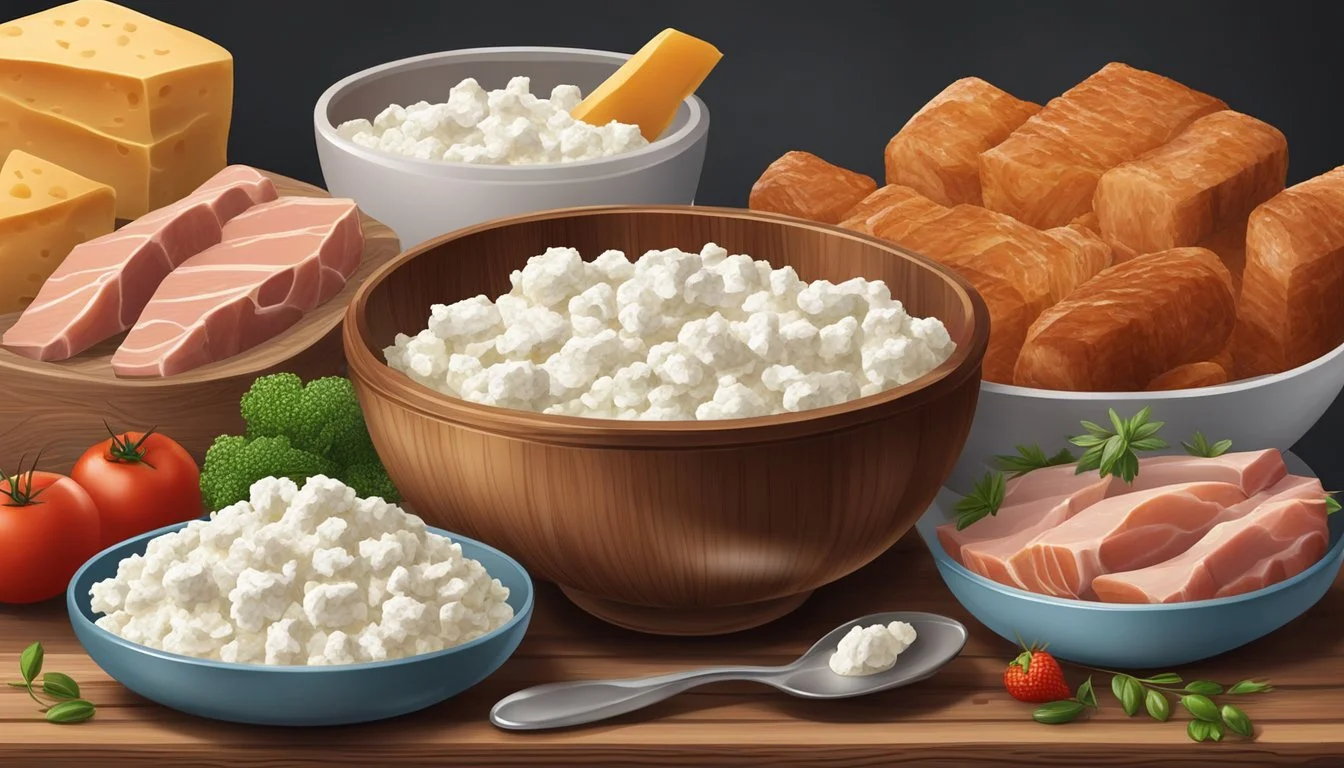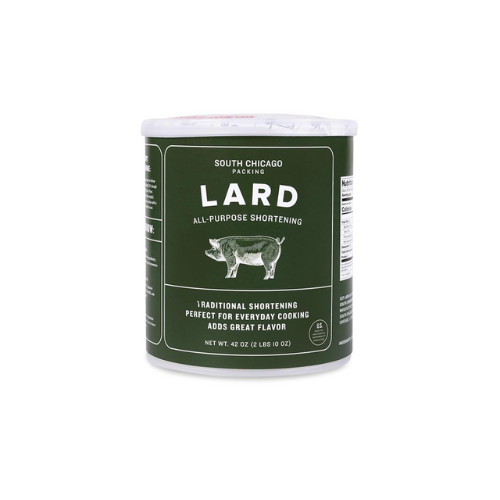Is Cottage Cheese Allowed on Carnivore Diet
Clarifying Dairy Inclusion
The carnivore diet emphasizes the consumption of animal products and typically excludes plant-based foods. This restrictive dietary pattern focuses on meat, fish, eggs, and certain dairy products. Given that dairy is an animal product, some individuals following the carnivore diet may consider incorporating cottage cheese into their meal plan due to its high protein content and relatively low carbohydrate content compared to other dairy products.
Cottage cheese (What wine goes well with cheese?) is made from the curds of cow's milk and contains a range of nutrients including protein, calcium, and essential amino acids. While some proponents of the carnivore diet include it because of these nutritional benefits, others opt to avoid it since it is less traditional than other animal-based foods. The decision to include cottage cheese in a carnivore diet can vary based on individual tolerance and dietary goals.
Dairy tolerance is a key consideration for those on the carnivore diet, as certain individuals may experience sensitivity or intolerance to lactose or casein, which are found in dairy products. The inclusion of cottage cheese, like any other dairy product, should be approached with caution, and individuals should monitor their body's response. The overarching guideline for the carnivore diet is to prioritize foods that align with its high-protein, low-carb framework, while tailoring the diet to one's personal nutritional needs and health response.
Understanding the Carnivore Diet
The carnivore diet strictly centers on animal-based foods, focusing on high protein intake, fats, and essential nutrients, while excluding plant-based items.
Definition and Principles
The carnivore diet is high-protein and nutrient-dense, centering on consuming exclusively animal products. It operates on the principle that human beings thrive on a diet consisting principally of meats and other animal products, positing that such a diet can meet all nutritional needs by providing sufficient proteins, fats, vitamins, and minerals.
Foods Included in the Diet
Foods that are typically included in the carnivore diet:
Meat: Beef, pork, lamb, game meat
Seafood: Fish, shellfish
Animal Fats: Tallow, lard
Eggs: Chicken, duck, quail
Certain Dairy Products: Hard cheeses, butter
This diet strongly emphasizes fatty cuts of meat and organ meats due to their high nutrient density. The high-fat content is crucial, flowing from the diet's insistence on fat as a primary macronutrient for energy.
Skip the lines and order your tallow or lard online for a stress-free shopping experience!
Health Implications
The health impact of the carnivore diet is a topic of debate, with some proponents claiming improved health markers and critics warning of potential risks. Proponents argue for benefits including weight loss and improved metabolic health due to its nutritious, largely single-ingredient food items. Critics, however, raise concerns about the exclusion of certain food groups and the long-term effects on health, advocating a balanced approach to nutrients which typically includes a variety of plant-based foods. It's essential for individuals considering this diet to consult with healthcare professionals to assess its suitability for their personal health needs.
Cottage Cheese on a Carnivore Diet
Deciding whether cottage cheese fits into a carnivore diet requires understanding its dairy status, nutritional content, and the associated potential benefits and drawbacks.
Is Dairy Allowed?
On the carnivore diet, the consumption of animal products is permitted, including certain dairy products that are low in lactose. Cottage cheese, however, contains lactose, a sugar found in dairy that some proponents of the diet exclude due to concerns over sugar intake and potential for inflammation.
Nutritional Profile of Cottage Cheese
Cottage cheese is rich in protein and a good source of calcium. It typically contains:
Calories: Varied, depending on fat content
Protein: Approximately 11 grams per 100 grams
Fat: Low-fat to full-fat options
Carbohydrates: Generally around 3-4 grams per 100 grams, mostly from lactose
Vitamins: Contains B vitamins and vitamin D
Cottage cheese's low-carb profile can align with the macronutrient targets of a carnivore diet when eaten in moderation.
Potential Benefits and Drawbacks
The inclusion of cottage cheese could offer benefits such as providing calcium and additional vitamins. However, because it contains lactose, it could lead to digestive issues or exacerbate lactose intolerance. Moreover, its dairy content may prompt inflammatory responses in individuals with dairy sensitivities or allergies, making it a contentious choice for a strict carnivore diet.
Comparing Dairy Options
When considering the carnivore diet, one assesses the inclusion of dairy products primarily based on their lactose content and nutritional profile.
Cottage Cheese vs. Other Cheeses
Cottage cheese is a fresh cheese known for its higher lactose content compared to aged cheeses. Its presence on the carnivore diet is often debated due to this lactose, a sugar that most adherents seek to minimize. On the other hand, hard cheeses such as Parmesan, Gouda, and Cheddar typically have less lactose as a result of the cheese-making process which involves fermentation, reducing sugar content.
Cheese Nutritional Profiles
Cottage Cheese
Lactose Content: Higher
Saturated Fats: Moderate
Calcium: High
Protein Content: Moderate
Parmesan
Lactose Content: Lower
Saturated Fats: High
Calcium: Very High
Protein Content: High
Cheddar
Lactose Content: Lower
Saturated Fats: High
Calcium: High
Protein Content: High
Gouda
Lactose Content: Lower
Saturated Fats: High
Calcium: High
Protein Content: High
Other cheeses like Brie, Camembert, and Swiss offer varying levels of lactose, with cream cheese and butter typically containing less but varying widely in saturated fat content. Notably, aged cheeses tend to be richer in calcium and vitamin K2.
Dairy Tolerance and Individual Variability
Each person's tolerance to dairy can greatly affect their choice of dairy on a carnivore diet. Those with lactose intolerance might avoid cottage cheese and opt for lower-lactose options like butter or hard cheeses. Tolerance can also extend to reactions to saturated fats found in dairy — while some individuals handle these well, others may experience adverse effects. It is the nutrient profile, including essential elements like protein, calcium, and vitamin K2, that may influence a carnivore dieter to incorporate select dairy products that he or she tolerates well into their diet.
Integrating Cottage Cheese Into the Carnivore Diet
Cottage cheese may be considered for inclusion in the carnivore diet, recognizing its dairy origins and protein content, but careful consideration of portion size and pairing with other animal products is essential.
Moderation and Portion Control
When integrating cottage cheese into a predominantly meat-based diet, moderation is key. As cottage cheese contains lactose, it should be consumed in small amounts to maintain the low-carb ethos of the carnivore diet. Starting with a tablespoon or two as a snack can gauge individual tolerance levels. A person's daily intake should focus largely on meats, fish, and eggs, ensuring these primary sources of protein and fat remain the foundation of the diet.
List: Suggested Portion Sizes for Cottage Cheese on Carnivore Diet
Portion Size: 1-2 Tbsp
Frequency: Occasional
Note: Test tolerance before regular consumption
Portion Size: 1/4 Cup
Frequency: Rare
Note: Limit to maintain diet integrity.
Combining with Other Animal Products
Cottage cheese can be paired with other animal-based foods to enhance satiety and nutrient intake. For instance, blending it with eggs in the morning or as a creamy addition to a lean cut of fish can enrich the meal's flavor and texture. The focus remains on high-protein, high-fat animal products, with cottage cheese serving as a supplementary item, not the centerpiece.
Examples:
Mix with scrambled eggs for a protein-enriched breakfast.
Top onto a piece of salmon for added creaminess and a boost in calcium.
Incorporating cottage cheese in this manner can contribute to health and weight loss goals when balance and dietary guidelines are adhered to within the carnivore diet framework.
Health Considerations and Warnings
When incorporating cottage cheese into a carnivore diet, it's crucial to be aware of potential health implications and warnings. These can range from impacts on blood markers to long-term health consequences.
Monitoring Health Markers
Individuals on the carnivore diet while consuming cottage cheese should regularly monitor health markers. This includes qualitative measures such as:
Blood cholesterol: Levels should be checked to understand the diet's impact on heart health.
Blood pressure: Essential to monitor for changes, as dietary content may influence it.
Inflammatory markers: Since the carnivore diet is expected to reduce inflammation, markers like C-reactive protein (CRP) should be tested to gauge the body's inflammatory response.
Tracking these markers helps in assessing any potential risks such as heart disease, high cholesterol, and blood pressure changes.
Understanding Long-Term Impacts
The long-term effects of combining cottage cheese with a carnivore diet require consideration. Key factors include:
Nutrient Deficiencies: The restriction of plant-based foods may result in a lack of certain vitamins and minerals, necessitating a focus on ensuring a well-rounded intake of nutrients.
Digestive Issues: Some individuals might experience digestive stress due to lactose in cottage cheese or a high intake of animal fats and proteins.
Weight Management: Cottage cheese, while high in protein, also contains fats that can contribute to weight gain if consumed in large quantities without careful macronutrient balancing.
Chronic Health Conditions: Consistent high consumption of certain fats in the presence of other risk factors may increase the likelihood of chronic conditions such as heart disease, diabetes, or cancer.
It is advised to consult healthcare providers to evaluate the risks and benefits for one's health, especially for those with pre-existing conditions or concerns regarding the diet's sustainability and safety.
Carnivore Diet and Holistic Nutrition
The Carnivore Diet emphasizes consuming only animal products and eliminating plant-based foods, with a focus on high-quality, nutritious meats and certain dairy products to maintain health.
The Role of Dairy in a Balanced Carnivore Diet
In the context of a Carnivore Diet, dairy can be a source of essential nutrients like fats, protein, vitamins, and minerals. Dairy products such as hard cheeses and butter offer concentrated nutrients without added sugars or additives. Full-fat dairy items are preferred due to their low lactose content and high nutrient density.
Milk Products in Carnivore Diet:
Allowed: Hard cheeses, butter, heavy cream
Avoid: Milk with added sugars, low-fat dairy, dairy with additives
Consuming dairy such as cheese can help meet dietary requirements for calcium, which is crucial for bone health. However, it is noted that individuals should pay attention to their body's response to dairy, as tolerances can vary.
Supplementation and Nutrient Completeness
While the Carnivore Diet provides many nutritious animal-based foods like organ meats, bone broth, chicken, pork, and bacon, there might be considerations for supplementing certain vitamins or minerals to ensure nutrient completeness. Individuals often focus on eating a variety of animal products, such as liver and other organ meats, to naturally obtain a spectrum of nutrients.
Key Nutrients to Monitor:
Vitamin C: Often sourced from fruits and vegetables, may require monitoring.
Fiber: Not present in animal products; however, proponents of the diet argue that fiber is not essential for health.
Micronutrients: Variety in meats consumed, including organ meats, is important to cover the spectrum of required micronutrients.
It is essential for individuals on the Carnivore Diet to consider their unique health needs and to consult with a healthcare professional for personalized advice on supplementation.
For the most extensive selection, I suggest buying vitamin C and fiber supplement online!
FAQs About Dairy on the Carnivore Diet
Engaging with the carnivore diet raises questions about the inclusion of dairy products, particularly how they affect health and adhere to dietary principles. This section navigates the complexities surrounding dairy, from nutritional content to digestibility concerns.
Addressing Common Questions
Is dairy permitted on the carnivore diet?
Dairy, including cheese and cottage cheese, is typically allowed as it originates from animal sources.
What dairy products are most compatible with the carnivore diet?
Products like butter and hard cheeses, which are lower in lactose, align well with the high-fat focus of the diet.
Can lactose intolerance impact dairy consumption on the carnivore diet?
Yes, individuals with lactose intolerance should opt for dairy with reduced or no lactose content to avoid discomfort.
Are there nutritional benefits to including dairy on the carnivore diet?
Dairy products are rich in calcium, proteins, and fat, including saturated fats and potentially vitamin K2, which can counteract nutrient deficiencies.
How does the fat content in dairy mesh with the carnivore diet's guidelines?
The carnivore diet favors high-fat foods, making dairy a good fit, especially products high in saturated fats and cholesterol, which are not shunned in this diet.
Myths and Misconceptions
Myth: All dairy has the same effects on health.
Fact: Dairy products can vary widely in lactose content, fat composition, and presence of compounds like vitamin K2, impacting their health effects.
Misconception: Dairy is inherently unhealthy due to its saturated fat and cholesterol content.
Clarification: The carnivore diet often refutes this claim, suggesting that fat from sources such as grass-fed dairy can be beneficial.
Myth: You must consume dairy to meet calcium needs on the carnivore diet.
Fact: While dairy is a potent source of calcium, other carnivore-friendly foods like fish with bones also offer calcium.
Misconception: Pasteurized dairy is preferable to raw on the carnivore diet.
Clarification: This is a personal preference, as some proponents argue that raw dairy retains more nutrients, but food safety is also a consideration.
Myth: Dairy causes nutrient deficiencies.
Fact: On the contrary, dairy can help prevent deficiencies by providing essential nutrients absent in muscle meats alone.
Conclusion
The carnivore diet adheres to a regimen focused solely on animal-based products, rejecting most dairy due to its lactose content and potential presence of carbohydrates. Cottage cheese, though high in protein, does not align well with the strict parameters of this diet. It is a dairy product that contains lactose, a sugar derived from milk, which carnivore diet guidelines typically exclude.
Individuals following the carnivore diet seek to consume foods that are exclusively from animal sources to potentially benefit from weight loss and nutritional gains through a low-carb, high-protein intake. The profile of cottage cheese, despite its nutritional value in other contexts, does not match the fundamental principles of the carnivore diet.
When considering nutrient intake and health, the carnivore diet values fat and protein without the inclusion of carbohydrates. Cottage cheese falls short in this aspect, as it does have minimal carbohydrate content. Thus, for those strictly observing the carnivore diet, cottage cheese would generally not be a recommended choice.
In summary, cottage cheese is more suitable for dietary approaches that allow for dairy and are not restrictive in carbohydrates. For those committed to the carnivore diet, other cheese varieties high in fat and very low in carbs may be more acceptable, though still a subject of debate within the carnivore community.









